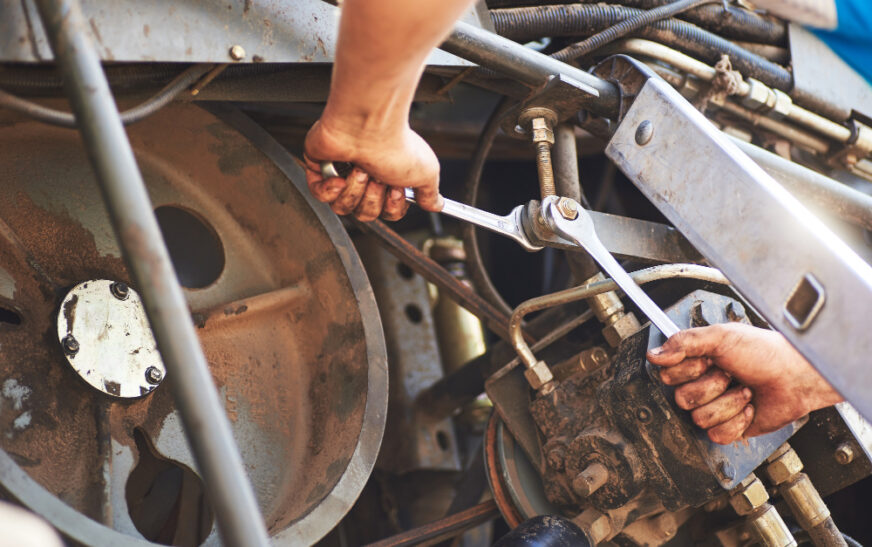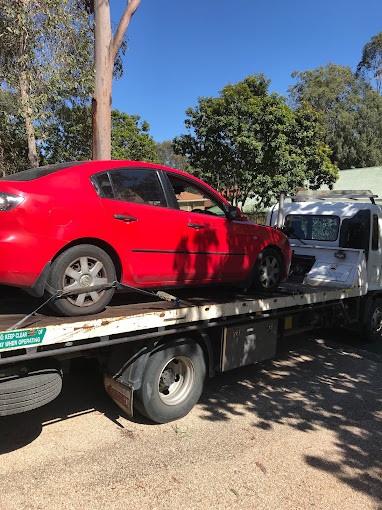The operation of a diesel engine depends significantly on the diesel fuel injector. These injectors ensure efficient combustion and optimal performance. The fuel injectors deliver just the right amount of fuel into the engine’s combustion chamber at the exact moment and under high pressure. They act with precision, maximizing power output, reducing emissions, and improving fuel economy.
Let’s look into how diesel fuel injectors work and their role in maximizing diesel engine efficiency. We will also discuss why one must invest in professional diesel fuel injector repair.
Understanding Diesel Fuel Injection
Petrol engines rely on spark plugs for ignition, while diesel engines use compression ignition. In compression ignition, air is compressed to a high temperature, and fuel is injected into the combustion chamber. The diesel fuel injector plays a central role in this process by atomizing the fuel into fine droplets for efficient combustion.
The Working Process of Diesel Fuel Injectors
Here is a break down of the working process of diesel fuel injectors.
1. High-Pressure Fuel Delivery
The fuel pump pressurizes the diesel fuel to extremely high levels (up to 30,000 psi or more in modern systems). This high pressure is required for proper atomization of the fuel.
2. Precise Timing
It is the engine’s Electronic Control Unit (ECU) that determines the precise time when fuel is to be injected. Sensors monitor several engine parameters like speed, temperature and load to calculate the ideal timing for fuel injection.
3. Fuel Atomization
The pressurized fuel passes through a tiny nozzle inside the injector, which breaks the fuel into a fine mist. With the help of atomization, fuel mixes thoroughly with the compressed air in the cylinder, which facilitates complete combustion.
4. Multiple Injection Phases
Modern diesel engines often use multiple injections like pre-injection, main injection and post-injection in one cycle to optimize power, control emissions and reduce noise.
5. Cooling and Lubrication
The diesel fuel as it flows through the system, lubricates and cools the injectors. Therefore, proper fuel quality is essential to maintain the injector’s efficiency and longevity.
Key Components of Diesel Fuel Injectors
Here are the key components of diesel fuel injectors:
1. Injector Nozzle
The injector nozzle is the precision tip where the fuel exits and atomizes. The nozzle’s design ensures the spray pattern of the fuel matches the combustion chamber’s layout.
2. Solenoid or Piezoelectric Actuators
These actuators control the injector valve’s opening and closing, allowing for precise fuel delivery. Piezoelectric actuators are preferred in modern diesel engines. It opens and closes the fuel injector at high speed and with precision to inject fuel into the engine.
3. High-Pressure Fuel Lines
The high-pressure fuel lines connect the fuel pump to the injectors and maintain the required pressure throughout the system.
4. Control Unit
The ECU controls the injectors and ensures they respond to real-time driving conditions.
Why Diesel Fuel Injectors Are Vital for Efficiency
Here’s why diesel fuel injectors are vital components:
1. Improved Fuel Economy
Injectors deliver the precise amount of fuel required to minimize wastage and improve fuel efficiency. They determine how much fuel is sent to the combustion chamber. By reducing the fuel to a fine mist, they allow for more efficient burning.
2. Reduced Emissions
Fuel injectors create optimal combustion conditions by injecting fuel in very small droplets at high pressure. Modern fuel injectors reduce emissions through optimized air mixing and precise fueling. Cleaner combustion, achieved through proper atomization and timing, leads to a reduction in harmful emissions.
3. Enhanced Engine Performance
Fuel injectors improve fuel efficiency by providing a more precise air-to-fuel ratio, leading to more efficient fuel use and reduced consumption. Through efficient fuel injection, they ensure the engine produces maximum power.
4. Longevity of Engine Components
Precise fuel delivery offers an additional benefit: it prevents carbon deposits and unburned fuel from damaging the engine.
Conclusion
Diesel fuel injectors are crucial for diesel engine performance, ensuring power, efficiency, and reduced environmental impact. They have become indispensable for modern diesel engines due to their precision design and operation. However, like any other mechanical component, injectors require regular maintenance and care for optimal performance. Additionally, the precise delivery of fuel under high pressure is controlled by the diesel fuel injection pump.
Over time, wear and tear can cause issues with both the injector and the pump. It is why diesel fuel injection pump testing also becomes critical.
Investing in professional diesel fuel injector repair or replacement services when needed will ensure that your engine continues to run efficiently.If you notice signs like reduced fuel efficiency or engine misfires, it’s important to address them promptly, as these may indicate injector wear.









